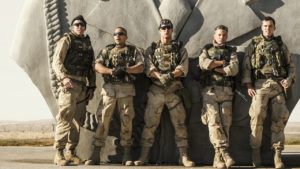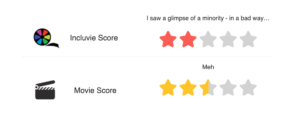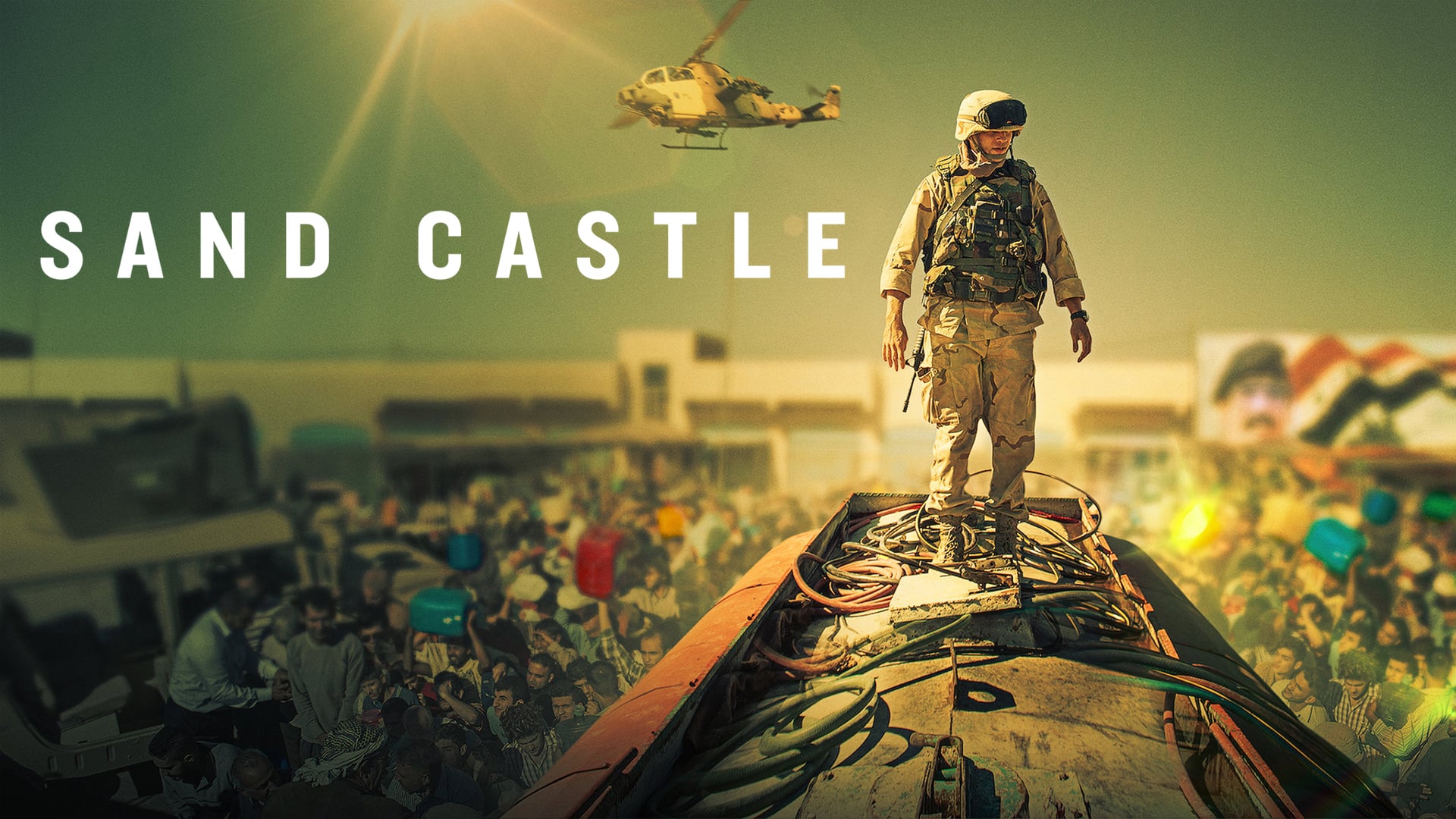Many have been asking if director Fernando Coimbra’s 2017 war drama Sand Castle pushes for drama at the expense of realism. Writer Chris Roessner based this film off of his experience as an Iraq veteran, but how much did he add to the story to embellish it to fit the big screen?
Roessner said himself that the film is based on his experience, but it is not totally autobiographical. Roessner came from a military family and when he was accepted into his dream film school, he soon realized he wasn’t able to afford tuition so the military seemed like the best solution. If he served a few years in the military, he could get the education benefits offered for serving the country and attend his dream school. The main character in Sand Castle, Ocre, has this same back story. (“‘Sand Castle,’ a film written by an Iraq veteran, is fiction shaded by war’s realities“)
Roessner’s goal was to portray what war was to him, dirty and violent, and the film did just that, but many other Iraq veterans argue the story falls flat of being realistic based on their experiences. So perhaps Roessner portrayed just his truth of war, and who then can tell him he’s wrong?
The debate of realism aside, the film itself is regrettably forgettable. War dramas are a vast genre and after some time the majority of them blend together. My fiancé enjoys war dramas (or action filled war stories in general) so I tend to tag along when he puts one on, but after a while I forget how many we’ve watched and what plot points belong to which movie. They’re all so similar. While Roessner tried to develop a film from the point of view of a different kind of character (young, empathetic, and naive rather than trained, strong, and unapologetic), the action and the plot get lost among the masses.
The plot wasn’t the only thing in this movie that was lost to the masses, I also had a hard time keeping track of characters and their names. Besides Nicholas Hoult, who portrayed Ocre, and Superman aka Henry Cavill, who play captain Syverson, I couldn’t keep track of the main characters. All the other men in Ocre’s unit had the same personality and the similar physical traits, they weren’t memorable so when they were injured or killed, I had no emotional attachment to them. That’s one of the worst things a film can do, include characters that are suppose to evoke emotion when they are killed or hurt, but do it poorly so the deaths are just wasted screen time. Unfortunately this also carried to the Iraqi characters. There were two relatively important Iraqi characters and I’m regretful to say I don’t remember either of them as they were given the minimum screen time possible while still trying to make them important.

The 2017 film is a far cry from a great diverse film. While some would argue the inclusion of many true Iraqi actors would make this film diverse, the main cast and the “heroes” of the film are primarily white men, with the exception of two poorly/ under- represented black men. The entire cast, aside from extras, are men and although statistically the percentage of women enlisted in the army is quite a bit lower than men, having at least a couple women included in the cast would strengthen the diversity of this film. After all, Roessner changed other aspects of the film, so replacing a few men with a few women wouldn’t hurt the overall story.
Overall, Sand Castle was another lack luster war drama that will eventually fade into the many similar war dramas I have seen throughout my life. If you’re a fan of war dramas this may be a story you are interested in, but for the masses you won’t be missing anything special if you skip this one over in your Netflix recommended list.


Comments